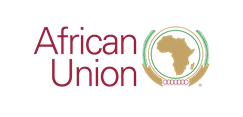African Union (AU) Summit will discuss and make far-reaching decisions on the security situation on the continent as some of its member states continue to face security challenges. At the opening of the Executive Council of Ministers of Foreign Affairs, the resurgence of military coups, pre- and post-election violence, humanitarian crises linked to war and the effects of climate change, were highlighted as serious threats that may reverse the gains accumulated in the development agenda of the continent. The emerging cracks on regional integration will also be discussed in the two-day ministerial session on the 14th to 15th February 2024.
H.E. Moussa Faki Mahamat, Chairperson of the African Union Commission underscored the need to holistically address issues on the continent paying attention to the global dynamics which exacerbate the worrying situations. He highlighted the security deficits in Sudan, Somalia, the Democratic Republic of Congo, Libya, and the Sahel region, which are currently embroiled in armed conflicts and terrorism. The Chairperson noted that “the resurgence of military coups, pre- and post-election violence, humanitarian crises linked to war and the effects of climate change, are all very serious sources of concern for us. They pose a serious threat to tarnish the signs of the emergence of the Africa of which we are proud. At a time when all these tragedies are killing in large numbers and throwing thousands of people into precariousness and misery. Another new phenomenon of collapse of our institutions of regional and continental governance is taking place, one that is affecting almost all regional economic communities (RECs).”
H.E. Dhoihir Dhoulkamal, Comoros Minister of Foreign Affairs and International Cooperation, and Chair of the Executive Council, equally underscored terrorism, violent extremism, and unconstitutional changes of government as a challenge to the democratic processes on the continent. He stated, “We have also spared no effort to find a lasting solution to the various crises that are currently affecting the continent. In Cairo, Addis Ababa and Djibouti, the war in Sudan has mobilized energies to bring the positions of the warring parties closer together. I believe that the two rival factions, in patriotism, will soon resume negotiations and thus shorten the suffering of the Sudanese people. In the Sahel, political transitions in Mali, Niger and Burkina Faso appear to be stalling. The withdrawal of these three countries from the regional bloc is not likely to promote a rapid return to institutional normalization. It is up to ECOWAS to enter into frank and sincere discussions with its three member states as soon as possible in order to find a way out of this situation, which is harmful to both parties, quickly and upwards..” Read statement here.
H.E. Taye Atske-Selassie, Ethiopia’s Minister of Foreign Affairs lauded the efforts by the African Union to timely address crisis on the continent underlining the impact in resolving the crisis in Ethiopia. “The African Union Peace and Security Architecture is central to the success of the African solutions to African challenges. The Architecture must continue serving in the promotion of sustainable peace and security in Africa. The Pretoria Peace Agreement that ended the conflict in Nothern Ethiopia shows our commitment to African solutions and the African Union’s ability to deliver peace. The government of Ethiopia continues to work with the African union, and the monitoring verification and compliance mechanism consolidate peace. The inclusive national dialogue process will contribute to further considerate our stability and we are determined to work closely with other countries to enhance our stability.”
In 2024, the African Union is set to unveil the Special Project on Agenda 2063, as the second decade of the framework’s implementation. H.E. Faki observed that the conditions for implementation of the first decade of Agenda 2063 had not been favourable for the optimal achievement of the objectives set under the various programmes. The challenges will inform the strategy of the second phase of implementation. Read statement here.
As Africa puts a spotlight on Education as the theme of the year 2024, the continent is looking at how to enhance education and skills to meet the continental vision and market needs. H.E. Claver Gatete, Executive Secretary of the UN Economic Commission for Africa (ECA) underscored the need to foster partnerships between industries and educational institutions for the curricula to align with job markets, improve the efficiency of educational spending and investments, and crowd in the private sector to support human capital development. “Africa cannot afford to play small in this 4th industrial revolution. We must be drivers or miss yet another opportunity. We can build technological capabilities that foster value addition in strategic sectors like agribusiness, manufacturing, green transitions, global health etc. We can generate economies of scale and agglomeration because we have the necessary workforce. When we integrate TVET within a modernized education system, we ensure capable labour markets for micro, small and medium-sized enterprises to become more competitive.”
On advancing multilateral cooperation, H.E Faki noted the significance of the African Union as a member of the G20 stating that “our membership at the G20, for which we have made intense advocacy, imposes on us more rationality, method and constant vigilance in the turbulent sphere of international relations of the moment.” His sentiments were echoed by H.E Taye who noted that “the African union participation in the G20 will provide us with a unique platform to contribute to global economic governance and decisions. We must therefore ensure that the voice of Africa is heard, that our participation is meaningful, and in the same vein enhance our working relationship with the BRICS to advance South-South cooperation. Ethiopia will certainly leverage it BRICS membership with other sisterly African countries to further advance, interest of our continent and strings and global governance.”
The Ministers of Foreign Affairs will prepare the agenda of work for the upcoming Assembly of Heads of State and Government session scheduled for the 17th -18th February 2024, where in addition to the issues highlighted above, will also deliberate on the milestones and progress made on trade, regional integration, and multilateral cooperation. The conclusion of the African Union theme of the year 2023 focused on the acceleration of the implementation of the African Continental Free Trade Area has recorded progress in a report that will be considered by the Assembly. The session will further deliberate on the roadmap for the theme of the year 2024 on Education, preparations for the elections of the Members of the African Union Commission, the institutional and financial reforms of the Union, agriculture and climate change, health advancements, as well as the empowerment of women and youth, among other key issues.
For updates on the 37th African Union Summit, visit African Union | An Integrated, Prosperous and Peaceful Africa. (au.int)
Distributed by APO Group on behalf of African Union (AU).

